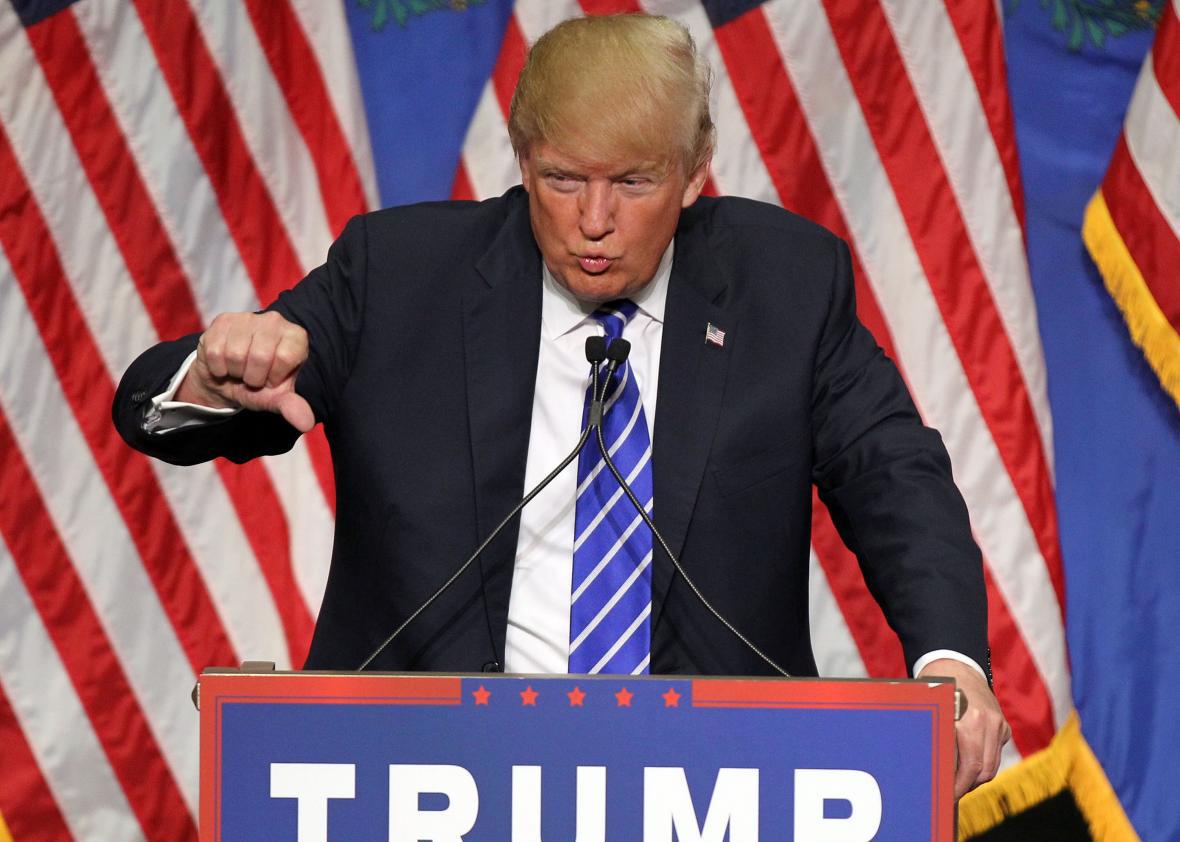You don’t have to follow Donald Trump on Twitter to know that he uses the social media platform in unusually impolitic ways for a politician. Sometimes, however, even he acknowledges that he’s gone too far, as he implicitly did Thursday afternoon when he deleted a retweet that suggested Ben Carson had only pulled ahead of him in Iowa because genetically modified corn had made the state’s people stupid. Unable to fully bury the message, Trump would later blame it on a “young intern.”
Twitter plays an increasingly central role in the political process, allowing officials and candidates to regulate their messaging from moment to moment. That also means it sometimes bears witness to their slip-ups, course corrections, and changes of heart. Accordingly, tracking these pivots and dodges has become an important component of political journalism. It’s also one that Twitter may soon be making easier.
On Wednesday, Jack Dorsey, Twitter’s sometimes-bearded co-founder and new CEO, implied that the company might once again open itself up to Politwoops and other projects like it. A digital transparency project, Politwoops monitored the Twitter accounts of politicians, capturing and publicizing their deleted tweets. In June, Twitter blocked Politwoops’ access to its application programming interface, effectively making their mission impossible. Soon after, they shut down 31 additional accounts that performed similar services elsewhere in the world.
As TechCrunch’s Sarah Perez notes, Politwoops never revealed anything that was truly scandalous. Nevertheless, it served as an important check on political speech. Though it may not have kept politicians honest, it made it a little easier to catch them when they were dissimulating. Perez points to Trump—who has deleted other messages as well—as a prime example, and she’s not alone in doing so. Yael Grauer wrote in September that Trump demonstrates why services like Politwoops are necessary. Politwoops, one of her sources observed, helps us cut through the spin, allowing us to get at the real people behind the posturing.
In these terms, Trump may be more than a useful example. His reputation depends in part on the impression that he’s a brash truth-teller, always ready to speak his mind, and never one to flee from controversy. Much of that plays out in his Twitter persona, where he unapologetically insults anyone who happens to evoke his ire. His deleted tweets are small but significant reminders that Trump’s virtual persona is just that, a digital illusion, carefully constructed. In the empty spaces they leave behind, we catch a glimpse of him preening, as if he were standing before a mirror, vainly plucking away at unsightly hairs.
While we may not need Politwoops to catch Trump, he still shows how powerful such a service can be. For a public dealing with politicians like Trump, Politwoops isn’t just a tool for spotting occasional omissions. It can also reveal the artificiality of their entire miens, revealing just how affected their affects really are. Let’s hope, then, that Dorsey makes good on his suggestion and brings it back soon.
